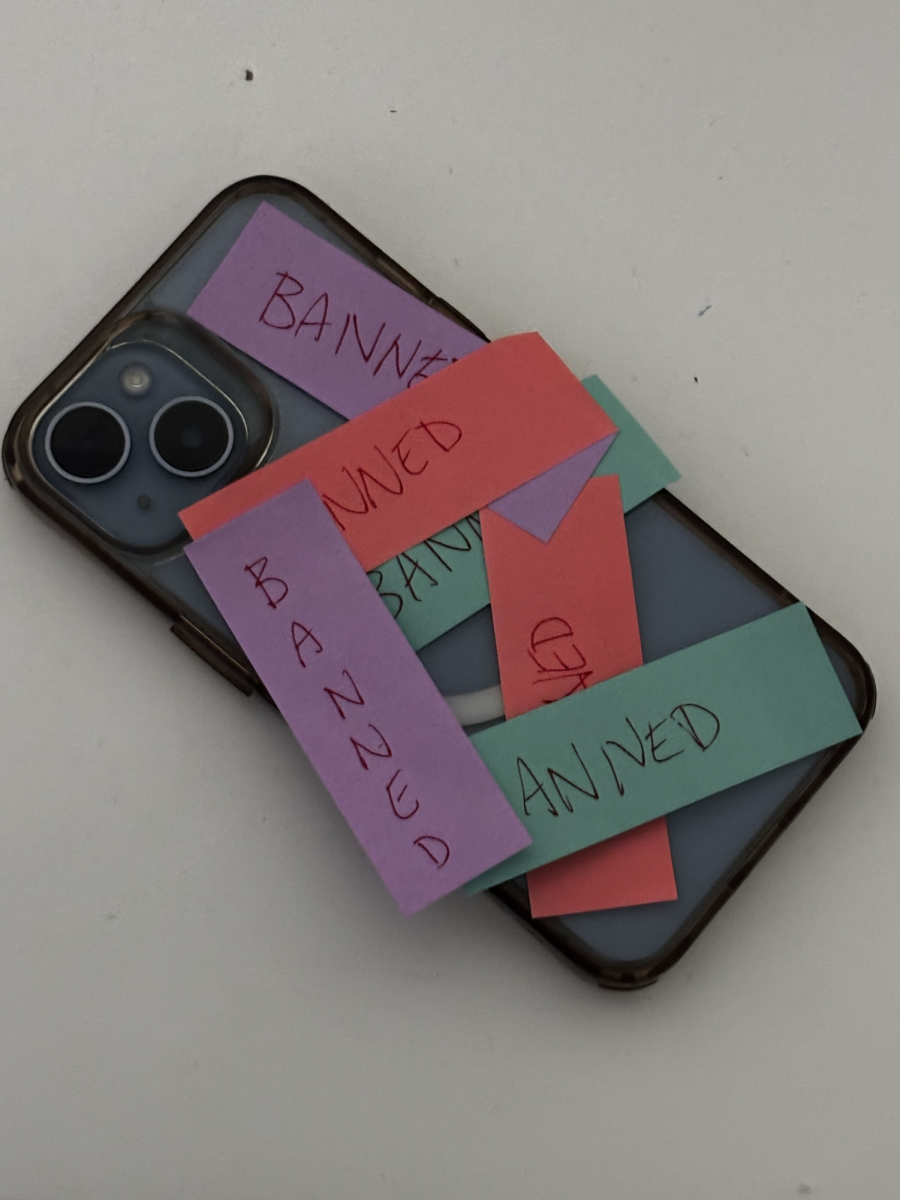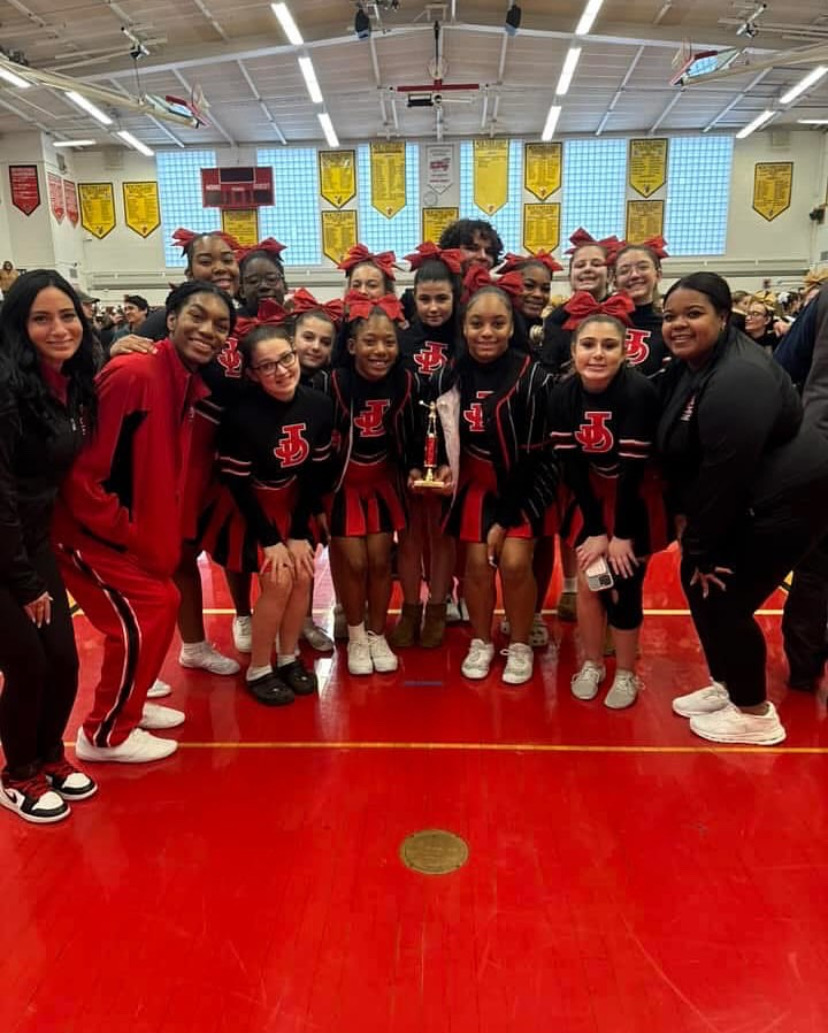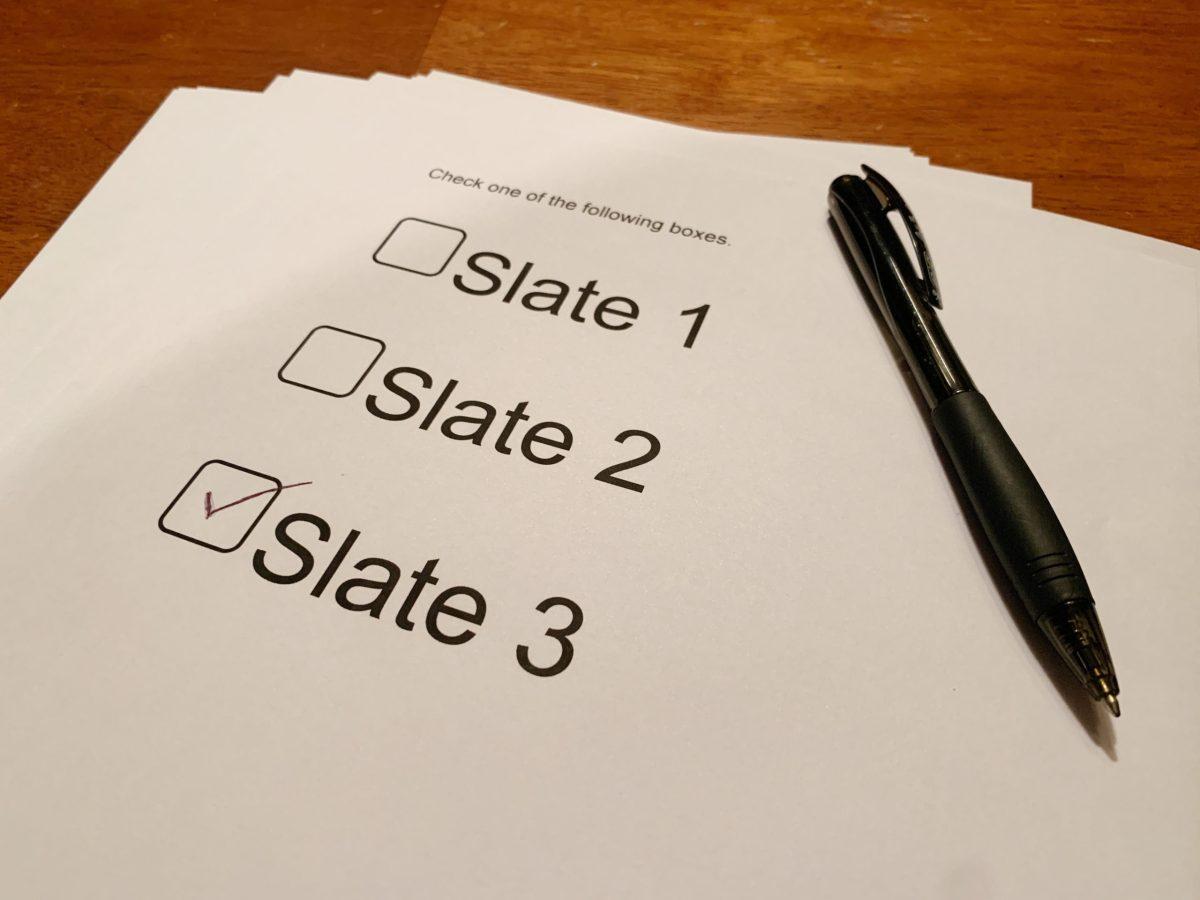The way J-DHS votes for student government representatives is ineffective. Why? Because it discourages new kids from getting involved in student council. The current system works as follows: A group of students gets together to form a slate. Each slate runs and campaigns together, and each student votes for a slate, not for a student for each individual position.
The problem with this voting system is that the same kids often run together every year. In turn, everyone votes for these kids because they’re the ones with student council experience. Thus, it becomes an endless cycle of the same kids being elected over and over because they have experience. It takes away from the merits of each student on an opposing slate that may be a stronger candidate than their respective opponents.
The slate system has been used in real governments as well. The U.S. electoral college is technically a slate system, in that voters choose a slate of electors (popular vote) who pledge to support a certain candidate. The electors are supposed to align with the popular vote of the state to vote for the president by keeping their promise of the candidate they will vote for, but sometimes they do not.
Canadian municipal (local) elections, however, are a slate system more similar to J-D’s. Their system has been heavily criticized, as the slates are temporary agreements to advertise together during the election. After the election, each slate’s members often have differing views and stop voting together. London, Ontario recently became the first municipality in Canada to use a ranked ballot system, in which candidates are eliminated round by round until one candidate has a majority of the votes between the final two. This better represents the real preferences of the community, and it allows individual candidates to campaign without relying on others running alongside them in a slate.
According to Principal Gasparini, “This is my 20th year here. [The slate system] predates me. This is one of those — Gaspo just went with the flow on that one. It’s just been a tradition here at J-D that students come together as a group. It’s like: here are all the Republicans, here are all the Democrats. Not to say that they’re Republican or Democrat. So they run as a group; that’s been the way we’ve done it. Is it the best way? Can we change someday? I don’t have a philosophy about that; it’s been the easiest way to manage things for us.”
When I asked Principal Gasparini what he thought about the possibility of the exclusion of new people into the student council, this is what he had to say. “I’m open to anything we can do. What happens sometimes, which I don’t think is great, is we’ll have one slate every competition. They’re all good kids, I mean the kids are great, but just one slate. And then you have some other kids that might be interested, but they don’t know each other, so they don’t want to come together as a slate. So if we changed the way student government’s elected, I’m open to that.”
So what system would work better? In my opinion, the best way to vote is for individual candidates. That way, each student has an opportunity to campaign for their own issues that they want to solve, rather than trusting that their running mates have the same priorities. With this system, candidates with less experience are more likely to get elected, because each position’s vote could be on a case-by-case basis.
Principal Gasparini suggested a possible idea for a new system as well. “There’s actually some very interesting experiments, research, conversation about making it a lottery system. You’ll have more candidates, if for example, class president, Isaiah’s interested, this person’s interested, that person’s interested. But other people might not run because they know Isaiah might just know more people, or there’s a kid on the lacrosse team or a kid on the softball team, whatever it is, or they’re in the musical so they know a lot of people, and they feel intimidated by that. You know, if we really wanted to be representative, what we’d do is: Everybody who’s interested, put your name in the hat, and we’d just draw it out. ‘Oh, okay, Isaiah’s president this year,’ you know, or Mary or James, whoever it is. So that’s an interesting concept too.”
But what about the student council members directly affected by the voting system? Several members of the sophomore class student government, as well as student council advisors, would like to share their thoughts. It seems many people are actually in support of the slate system.
“I think that the slate system is functioning as intended. Anybody has the ability to run, and everybody’s free to vote. The people choose the slate, and voting is easy to access,” says Secretary Ali Mobeen.
Co-President Mikey Meskos supports the slate system. “I think the slate system has a lot of positives. I found it really helpful because a group of students get to choose who they want to work with, which is a luxury that we don’t get in some classes. I also found it helpful that my slate and I were able to start planning before we were even elected, which allowed us to be way more prepared when we eventually won. However, I can acknowledge that it causes certain cliques to form and allows for the same kids to keep running year after year. In the end, I’m a big fan of the slate system because it promotes student collaboration and lets a dedicated group of students achieve their goals together.”
Director of Communications Nicki Meskos encourages everyone interested in student government to give it a shot, and she recognizes the positives and negatives of the system. “I think that anyone interested in student government should get involved because everyone has their own creative and unique ideas that our school would be lucky to benefit from, regardless if they have student government experience. Everyone has probably had some leadership experience whether it is from being involved in sports, music, MUN or any other activities or programs. These activities make anyone a great candidate for student government! Aside from activities, the best candidate for student council is kind to those around them and a good role model. Running in slates allows people to work with people they trust and collaborate well with, however it can also discourage people from running because either you don’t get asked to be in one or you don’t know who to ask. I didn’t even know if I was going to run because I assumed everyone already had a slate or no one would want me on their slate, so it can definitely be tough to figure out and intimidating!”
Will Hartley, guidance counselor and freshman class student council advisor, also sees both sides of the system. “I am the freshman class advisor so the typical process for our elections has always been that I go down to the middle school, talk to the kids about running, then they hold elections down there in June and on the first day of school I meet the Freshmen Class Officers. I have been doing it a long time and the kids are always great, but still I’m sure there are even more great kids out there who are not involved. And yes, often at the end of the year, some of those kids run for sophomore class officer positions and some run for the overarching student government on a slate. So I can see what you mean about how it does tend to keep the same kids in the system. This year has been different and fun in a different way, in that there were no elections at the middle school this past spring, and thus no officers at the beginning of school. I put out emails and announcements basically asking for anyone who is interested, and we just formed a slightly larger government, which has been very fun as well. With the slates, I think there tend to be more kids (director of communication, director of yard games, etc.), so I wonder what it would look like if there were just a larger group for student council (maybe 8-10 spots?) and just have a bunch of individuals run. I don’t know how you ensure ‘diversity’ or new blood. I will say a lot of the kids in these offices tend to also be involved in other things so a student’s commitment to one group can be tricky.”
Meghan McGee is an advisor as well. “I would actually echo much of what Mr. Gasparini said. This system has been in place since before I took I got here as well. I am definitely open to changes in the future. I see pros and cons to our current system. The biggest positive to me is that kids that are not comfortable running alone, have the ability to come together with peers to run as a group. So for many kids that have a lack of confidence, this gives them the ability to still run for student government. On the flip side, sometimes the ‘group’ has some great members that want to work really hard, etc… but some that do not have that same work ethic. I am definitely open to changes in the future. However, this year has been so crazy with COVID related changes, that I haven’t given it much thought as of now.”
The idea many have is that the slate system allows quieter kids to team up with their friends if they still want to be on student council, and I recognize that. It’s definitely effective in some areas, but I still feel as if it could be improved. There’s no reason to believe that the same students won’t run together again next year and win again. Perhaps a limit on terms (maybe two years) could be implemented so other kids can get a chance. No matter which system we go with, something needs to change so that more kids can participate and have a real chance at winning.































